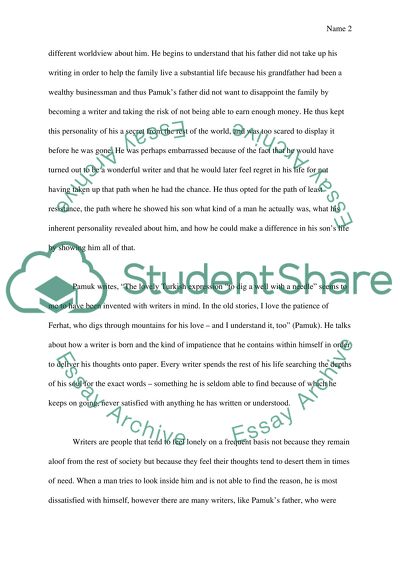Cite this document
(“My Father's Suitcase by orhan pamuk Research Paper”, n.d.)
My Father's Suitcase by orhan pamuk Research Paper. Retrieved from https://studentshare.org/english/1594208-my-fathers-suitcase-by-orhan-pamuk
My Father's Suitcase by orhan pamuk Research Paper. Retrieved from https://studentshare.org/english/1594208-my-fathers-suitcase-by-orhan-pamuk
(My Father'S Suitcase by Orhan Pamuk Research Paper)
My Father'S Suitcase by Orhan Pamuk Research Paper. https://studentshare.org/english/1594208-my-fathers-suitcase-by-orhan-pamuk.
My Father'S Suitcase by Orhan Pamuk Research Paper. https://studentshare.org/english/1594208-my-fathers-suitcase-by-orhan-pamuk.
“My Father'S Suitcase by Orhan Pamuk Research Paper”, n.d. https://studentshare.org/english/1594208-my-fathers-suitcase-by-orhan-pamuk.


